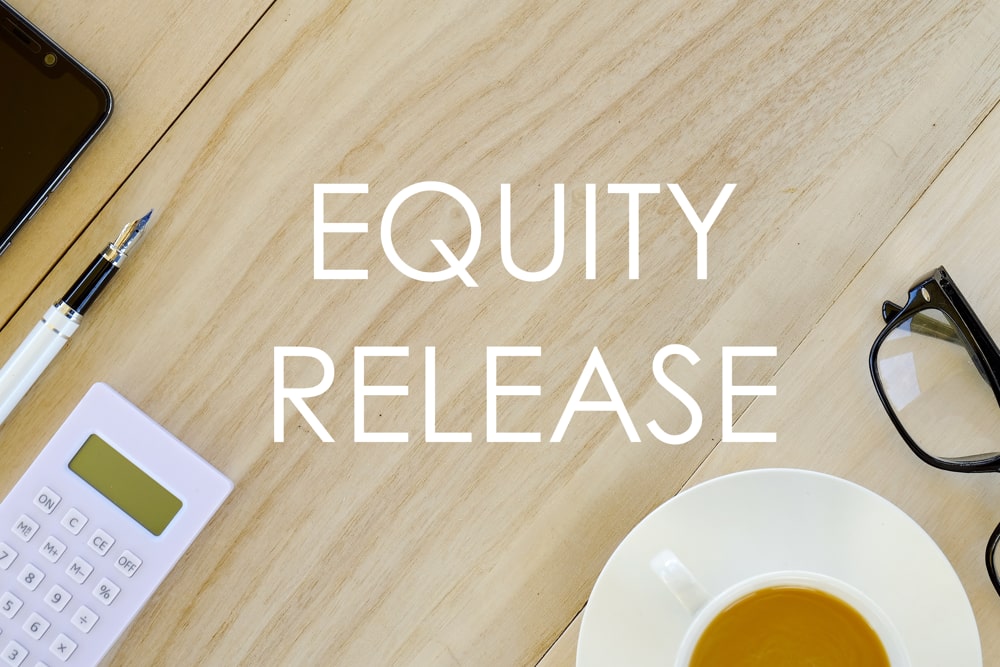As the current cost of living crisis intensifies – with prices of everything from gas and electricity to the weekly shop set to rise – more and more of my clients are frustrated at watching their bank balance shrink while the value of their home means that, on paper, they are comfortably off.
Not so long ago, the safest way of accessing the money wrapped up in their bricks and mortar – their equity – would have been to sell up and downsize.
Yes, they could have borrowed money against the value of their home – equity release schemes have existed for decades – but these loans have had a mixed reputation in the past and were not the attractive and popular option they are today.

What you need to know about modern equity release schemes
Several things have changed in recent years – and, thanks to the work of the Equity Release Council, modern equity release is now a safe and valid option that can be life-enhancing for those who choose to make the most of it.
For one thing, we are currently enjoying a period of historically low interest rates. With an average rate of 3.1% on an equity release loan, it would take approximately 22 years for the sum you have borrowed to double in size – assuming you choose not to pay any interest during the life of your loan, instead letting it “roll-up”.
For example, a loan of £100,000 taken out in 2022 will reach £200,000 by 2044. But you could reasonably expect that the value of your home will also have risen in that time.
We can guarantee that these figures will stick, and there will be no nasty surprises when you or your inheritors come to sell your property, because modern equity release schemes – “lifetime mortgages” – offer interest rates that are fixed for the lifetime of your loan. Yes, rates that are fixed for life!
In practice, this means that your equity release adviser can calculate exactly how much your loan will cost you to repay it after 10, 20 or 30 years.
To pay or not to pay: understanding the interest on your equity release loan
Reflecting the very individual and different needs that today’s borrowers have, lenders are offering increasingly flexible options. For example, you can choose to “service the interest in full” by paying it as you go, thereby preventing it from “rolling-up” or increasing at all.
Opting to do this means that your final redemption payment need not be a penny more than the sum of your initial loan. Again, your equity release adviser can illustrate how the monthly costs will differ if you opt to pay your interest instead of letting it roll up.
You also have the option of repaying the capital – the initial sum borrowed – if your circumstances change and you decide you no longer need the loan. However, as with many traditional mortgage products, there will usually be a redemption fee to pay if you repay the loan within a certain period of time.
While some lenders may demand a redemption fee if you repay the loan within eight years, others will have much longer timeframes. How much you would be required to pay as a redemption fee also varies between lenders. Your equity release adviser can discuss your options and help you reach the right decision for you. In reality, though, there are usually no redemption penalties as most people choose to take equity release as a permanent solution.
Is equity release right for you?
Taking advantage of one of the roughly 250 equity release products currently available can enable you to stay on in the house you love. But, should you choose to move in the future, most can also be “ported” – meaning that (subject to your lender’s approval) you can transfer the loan, or part of it, and secure it against your new home.
However, I always stress that despite the attractiveness and security of most modern equity release loans, there will inevitably be a lot to discuss and consider before you make an application or accept a lender’s offer.
For this reason, individuals are not currently able to apply directly to lenders for an equity release loan. It is a requirement that an adviser makes the application for you – and therefore essential that you find an adviser you can trust, who is a member of the Equity Release Council. And remember, our initial consultation is free* – so, even if you just want to explore your options, and find out how equity release could help you, we’re here to answer your questions.
Access Equity Release charge a fee upon completion of your Lifetime mortgage for advising on and arranging your mortgage. This fee is a one-off fee. Any future advice will be subject to additional fees payable to Access Equity Release.












